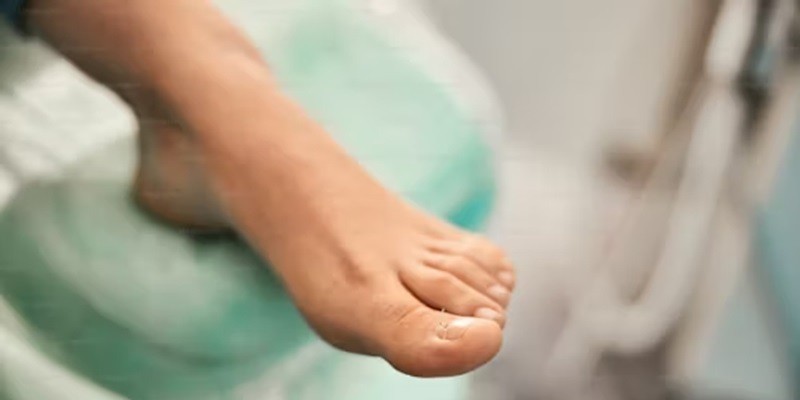Last Updated on January 15, 2025
As we age, our bodies undergo numerous changes, and our feet are no exception. For seniors, maintaining foot health is vital for overall well-being and mobility. This article explores the importance of podiatry for seniors, common foot problems, essential foot care tips, and special considerations for diabetic seniors. Additionally, we provide FAQs and key takeaways to help seniors keep their feet in top condition.
Common Foot Problems in Seniors
Aging can lead to various foot problems due to changes in skin, bone structure, and circulation. Common issues include:
- Bunions: These bony bumps form on the joint at the base of the big toe, causing pain and deformity.
- Hammertoes: This condition causes toes to bend abnormally, leading to discomfort and difficulty finding proper footwear.
- Corns and Calluses: Thickened skin areas that develop due to pressure and friction, often resulting from ill-fitting shoes.
- Arthritis: Joint inflammation that can cause pain, stiffness, and swelling in the feet.
- Diabetic Foot Complications: Diabetes can lead to poor circulation and nerve damage, increasing the risk of foot ulcers and infections.
Importance of Regular Podiatry Visits
Regular visits to a podiatrist are crucial for seniors to maintain foot health. Podiatrists specialize in diagnosing and treating foot and ankle conditions, making them essential partners in senior healthcare. Benefits of regular podiatry visits include:
- Early Detection: Identifying and addressing foot problems early can prevent them from becoming severe.
- Personalized Care: Podiatrists can provide tailored advice and treatment plans based on individual needs.
- Preventive Measures: Regular check-ups can help prevent common issues like ingrown toenails, fungal infections, and foot deformities.
Essential Foot Care Tips for Seniors
Proper foot care is essential for seniors to maintain mobility and prevent foot problems. Here are some crucial tips:
Proper Foot Hygiene
- Daily Washing: Wash your feet daily with warm water and mild soap. Ensure you dry them thoroughly, especially between the toes, to prevent fungal infections.
- Moisturizing: Apply a moisturizer to keep the skin soft and prevent dryness and cracking. Avoid moisturizing between the toes to reduce the risk of fungal growth.
Nail Care
- Trimming: Trim your toenails straight across and avoid cutting them too short to prevent ingrown toenails. If you have difficulty reaching your feet, consider visiting a podiatrist for professional nail care.
- Inspection: Regularly inspect your nails for signs of fungal infections, such as discoloration, thickening, or crumbling.
Choosing the Right Footwear
- Comfortable Shoes: Select shoes that are comfortable, provide adequate support, and have a wide toe box to avoid pressure on the toes. Avoid high heels and narrow shoes that can cause deformities and pain.
- Proper Fit: Ensure your shoes fit well and allow for natural movement of the feet. Shoes that are too tight or too loose can lead to blisters, calluses, and other foot issues.
Managing Foot Pain
- Home Remedies: For minor foot pain, try soaking your feet in warm water with Epsom salts, applying ice packs, or using over-the-counter pain relievers.
- Professional Help: If foot pain persists, consult a podiatrist. They can provide targeted treatments and advice to alleviate pain and improve foot health.
Special Considerations for Diabetic Seniors
Diabetes can cause significant foot complications due to poor circulation and nerve damage. Diabetic seniors should take extra precautions to protect their feet:
- Regular Foot Exams: Have your feet examined regularly by a podiatrist to detect any issues early.
- Daily Inspection: Inspect your feet daily for cuts, blisters, sores, or any signs of infection. Use a mirror if necessary to check the bottoms of your feet.
- Proper Footwear: Wear shoes and socks that fit well and provide cushioning to reduce pressure points and prevent injuries.
- Blood Sugar Control: Maintain good blood sugar control to reduce the risk of nerve damage and poor circulation.
FAQs
What are the most common foot problems in seniors?
Seniors commonly experience bunions, hammertoes, corns, calluses, arthritis, and diabetic foot complications. These issues can cause pain and mobility problems if not addressed promptly.
How often should seniors see a podiatrist?
Seniors should visit a podiatrist at least once a year for a comprehensive foot exam. Those with diabetes or existing foot conditions may need more frequent visits.
What should seniors look for in a good pair of shoes?
Seniors should choose shoes that are comfortable, provide adequate support, have a wide toe box, and fit properly. Avoid high heels and narrow shoes to prevent foot problems.
How can seniors maintain good foot hygiene?
Seniors should wash their feet daily with warm water and mild soap, dry them thoroughly, and apply moisturizer. Regular nail trimming and inspection for infections are also essential.
What should diabetic seniors do to care for their feet?
Diabetic seniors should inspect their feet daily, wear proper footwear, have regular foot exams by a podiatrist, and maintain good blood sugar control to prevent complications.

Key Takeaways
- Regular podiatry visits are crucial for maintaining foot health in seniors. Early detection and treatment of foot issues can significantly improve quality of life.
- Proper foot care, including daily hygiene, nail care, and wearing suitable footwear, can prevent many common foot problems.
- Diabetic seniors need to be especially vigilant about their foot health to avoid serious complications. Regular inspections and podiatry visits are essential.
- Maintaining good foot health helps seniors stay active, mobile, and independent, enhancing their overall well-being.
Conclusion
Foot health is a vital aspect of overall wellness for seniors. By following the essential foot care tips outlined in this article and seeking regular podiatric care, seniors can prevent common foot problems and maintain their mobility and independence. Whether dealing with bunions, arthritis, or diabetic foot complications, proper foot care is key to enjoying a healthy and active life in your golden years. Don’t neglect your feet—take proactive steps today to ensure they carry you comfortably through your senior years.







